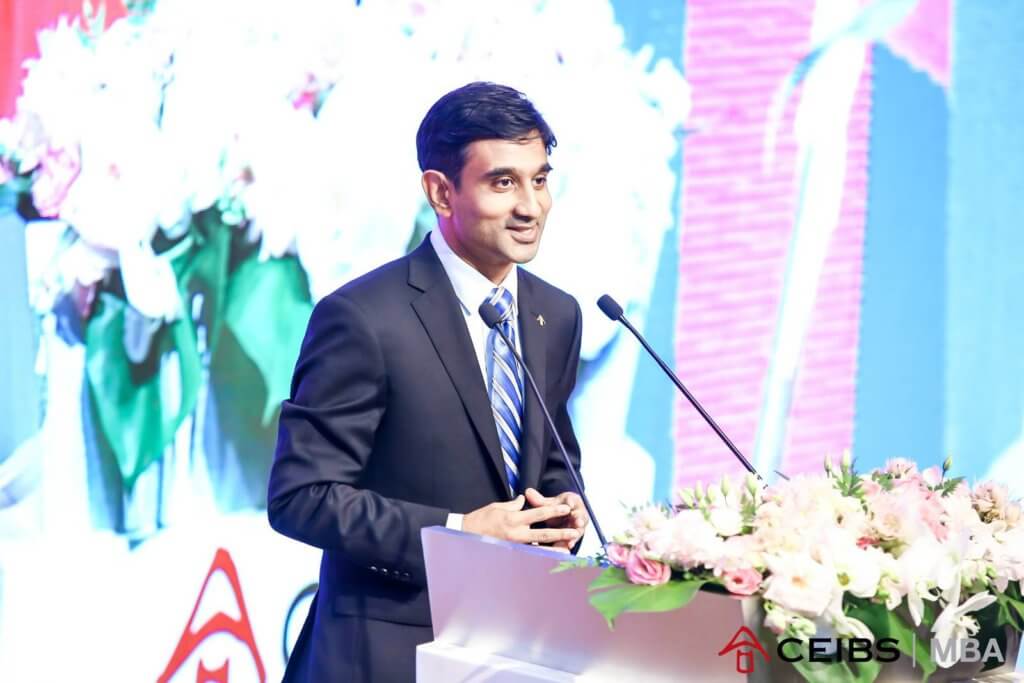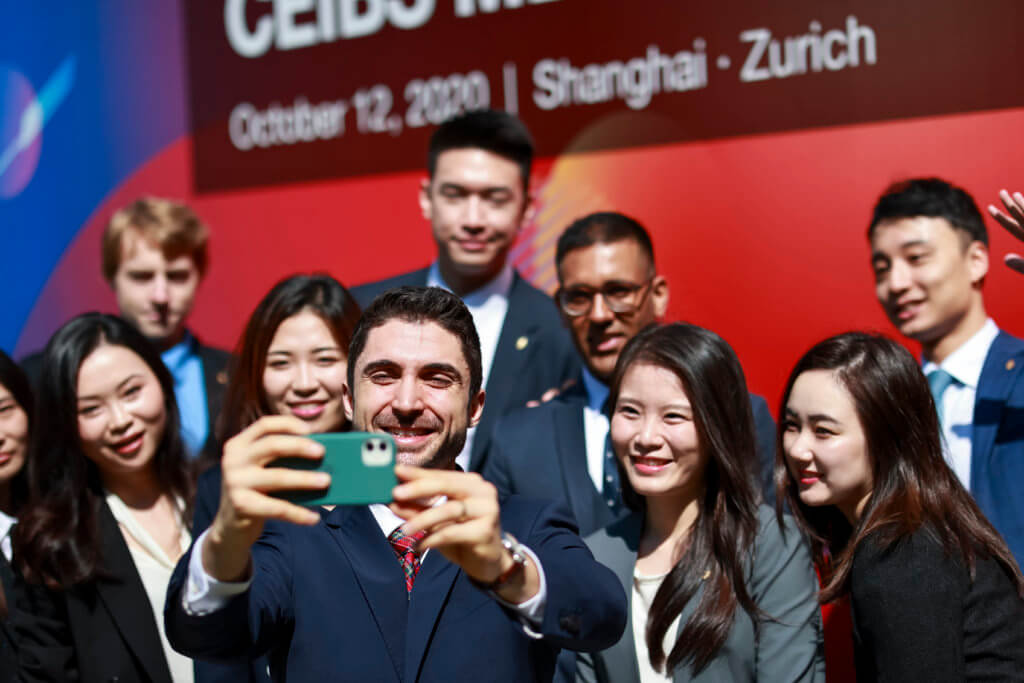Over 60% international faculty. More than 24,000 alumni globally. Campuses in China, Europe and Africa. Exposure to the most recent research findings relevant to doing business with China. The first carbon neutral business school in Asia. These are the qualities that describe China Europe International Business School (CEIBS).
In 2020, these are also the characteristics that define a business school able to produce dynamic graduates in a post-pandemic world. Economies have been pummelled. Vaccines are on the horizon, but are not silver bullets, according to the World Health Organisation. Inequality is worsening. Then, there remains the climate crisis.
According to CEIBS Associate Dean and MBA Director Shameen Prashantham, businesses are set to enter a new year set to be defined by three major trends: China’s interconnectivity with the rest of the world, digital transformation and an urgent need to realise the United Nations Sustainable Development Goals.
“All were important pre-COVID-19 and pre-Trump,” he says. “They have just become even more complex and dynamic – accelerated, if you will.”

Source: Professor Prashantham – China Europe International Business School
Young managers must be able to understand what has changed and what now needs to be done, Professor Prashantham emphasises. At CEIBS, there are courses that provide students with the knowledge, skills and experience to this end. They include the MBA, Finance MBA, Global Executive MBA, Hospitality EMBA and Executive Education programmes. The CEIBS MBA is ranked first in Asia and fifth globally in the Financial Times’ Global MBA Ranking 2020.
China and its role in our world today are the top strength of the CEIBS MBA curriculum. It has the largest number of China-related case studies. It has developed modules around innovation in Shenzhen, the globalisation of Chinese companies in Nanjing, Chinese family businesses in Ningbo and so on. This year, it also added new modules in Beijing and Hangzhou.
CEIBS itself was co-founded by the Chinese government and the European Union (EU) in 1994. Its mission? To educate responsible leaders versed in “China Depth, Global Breadth.”
This mission manifests itself through various pedagogy and initiatives at the school. In teaching, it merges East and West. In the Integrated China Strategy Project (ICSP), MBA students take on real consultancy projects in challenging areas such as big data, smart logistics and VR/AR, to name a few. Last year, the China Discovery Series — which provides the most recent research findings relevant to China — offered fresh perspectives on the country’s history, economic developments, international relations, and cultural evolution.

Source: Professor Prashantham – China Europe International Business School (CEIBS)
“Each presentation served a different purpose, but together they formed a holistic view of the Chinese economy and its challenges, changes and successes. Each presentation provided students a framework for thinking about global economic change over the past ten years, but also ideas on how to participate in the new economy over the next ten years,” MBA student James Rogan Quinn says.
That includes the know-how to take on the digital revolution — a topic that pervades the CEIBS MBA. This was a matter dealt with even before Professor Prashantham took over from his predecessor, Professor Juan Antonio Fernandez. Under Professor Fernandez, a digital business concentration was introduced. What followed was a dramatic increase in the number of digitally-relevant electives.
“This is something that we have been actively working on,” Professor Prashantham says.
Recently, for the “Digital Strategy” course, students got to hear from several distinguished speakers, including Jeffrey Towson, a visiting professor from Peking University, and McKinsey & Company Senior Partner Jonathan Woetzel, along with a CEIBS alum with a successful e-commerce platform and a representative from Alibaba. What they shared revealed two things. Firstly, digital developments are happening at unprecedented scale and speed. Secondly, many important developments are taking place in China.

Source: China Europe International Business School (CEIBS)
“It is very clear that understanding what is happening right here in China is one of the best ways to understand what is happening in the digital world,” Professor Prashantham explains.
As for SDGs, CEIBS offers a core course in business and society. This is in addition to core courses in ethics and corporate governance. There is even an elective that involves a trip to Malaysia, where MBA candidates can be part of a leadership development camp.
“Going forward, we’re hoping to embed notions of SDGs even more extensively in all of the courses and club activities,” Professor Prashantham says.
CEIBS MBA students can expect to learn all of the above — and how to capitalise on them — in some of the most engaging classes in business schools today. The trademarked Real Situation Learning Method (RSLM) is a high-end approach to teaching — a bit of a luxury good that is offered in limited quantities. It is “case teaching plus,” an upgraded version of the traditional Harvard-style approach, where students get to visit a company to engage directly with its top executives. It is a method that makes case studies come alive.
CEIBS Associate Dean (Europe) Professor Katherine Xin hopes RSLM will eventually cover topics such as blockchain, engaging experts, innovators, executives from around the globe.

Source: China Europe International Business School (CEIBS)
“I also hope we can do more RSLM projects in China that see us reciprocate and open our doors to engage international participants who would like to visit Chinese companies to understand China,” Professor Xin says.
Partnerships with 40 schools, most of which are among the Financial Times’ global top 50 list, allow CEIBS students to take advantage of its highly rewarding International Exchange Programme. According to past participants, it is a great way to diversify their MBA experience, with time to socialise, make friends, travel and experience new cultures.
A CEIBS MBA is impactful — but it doesn’t stop at the end of the 18-month programme (or 12 months, for its more intensive version). The CEIBS Career Development Centre (CDC) supports MBA and Global EMBA alumni up to five years after graduation. With the CDC’s help, CEIBS MBA graduates now command an average salary increase of 187% within three years after graduation and 91.4% of the 2020 class accepted a job offer within three months of graduation. Four out of five (86.2%) graduates also successfully achieved a career switch — changing their function, industry, or both.
You can sign up for a one-to-one consultation session with the MBA Admissions team here.











